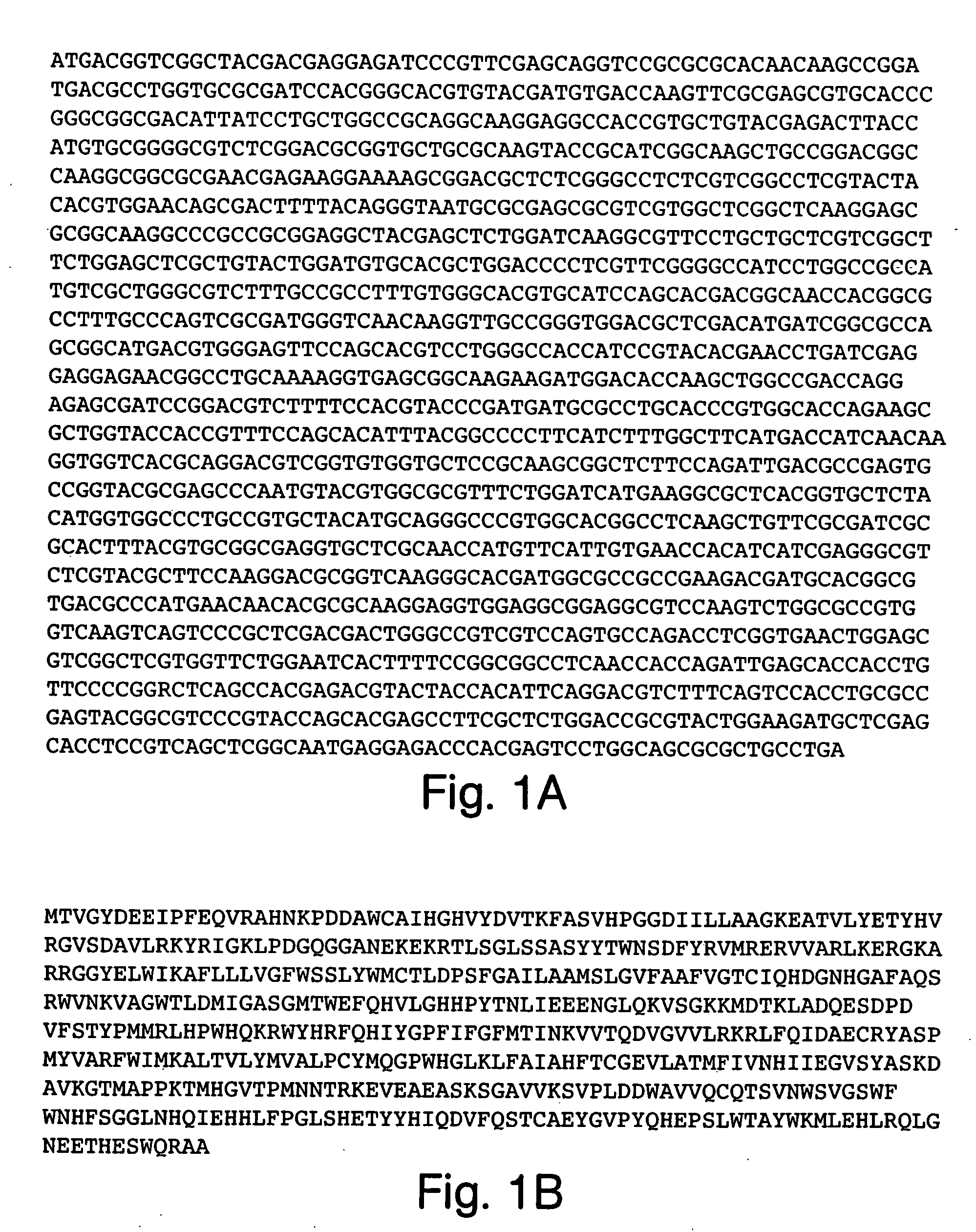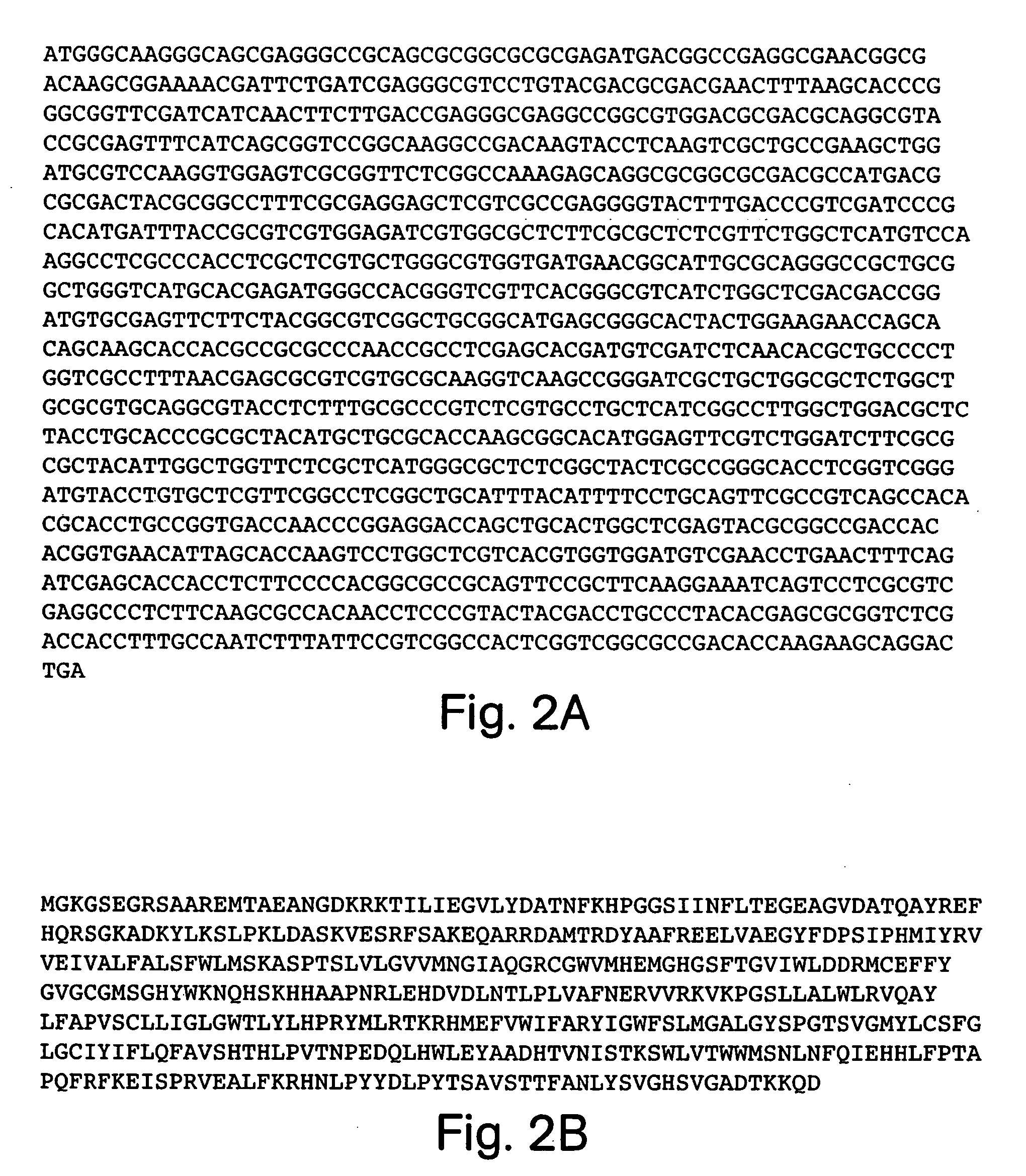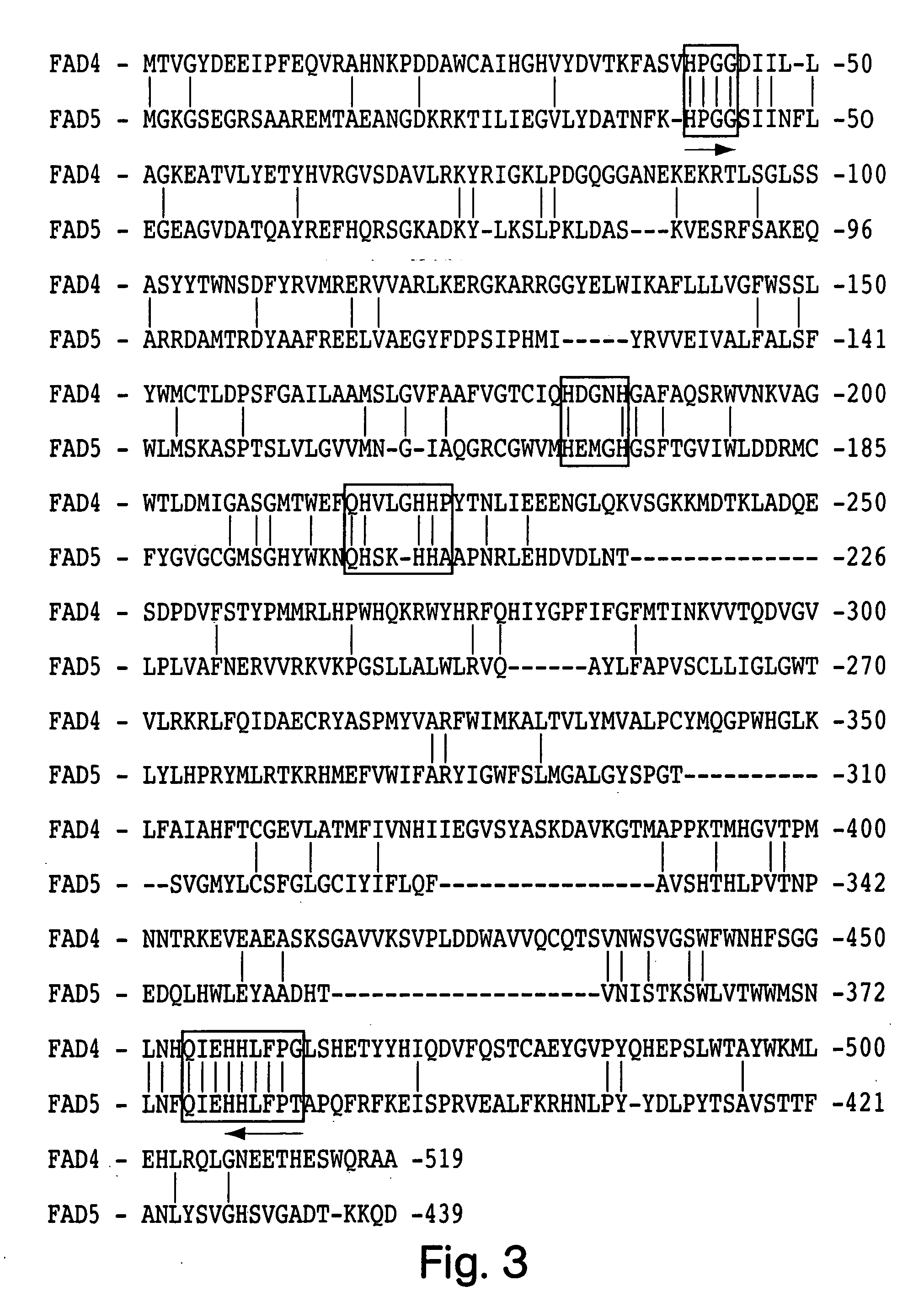Fad4, Fad5, Fad5-2, and Fad6, novel fatty acid desaturase family members and uses thereof
- Summary
- Abstract
- Description
- Claims
- Application Information
AI Technical Summary
Benefits of technology
Problems solved by technology
Method used
Image
Examples
example 1
Construction and Screening of cDNA Library
[0161] Total RNA was isolated from the above materials according to Qiu and Erickson (Qiu, X. and Eriekson, L. (1994) Plant Mol. Biol. Repr. 12:209-214). The cDNA library was constructed from the total RNA. The first strand cDNA was synthesized by superscript II reverse transcriptase from Gibco-BRL. The second strand cDNA was synthesized by DNA polymerase I from Stratagene. After size fractionation, cDNA inserts larger than 1 kb were ligated into λ Uni-Zap XR vector (Stratagene). The recombinant˜DNAs were then packed with Gigapack III Gold packaging extract (Stratagene) and plated on NZY plates. The resulting library represented more than 5×106 independent clones. Screening of the cDNA library was performed according to standard methods (Sambrook, J, Fritseh, E. F., Maniatis, T. (1989) Molecular cloning—A laboratory manual. (Cold Spring Harbor, N.Y., USA.)
example 2
RT-PCR
[0162] The single strand cDNA was synthesized by superscript II reverse transcriptase (Gibco-BRL) from total RNA and was then used as the template for PCR reaction with two degenerate primers (The forward primer: GCNCA / GANGANCAC / TCCNGGXGG (SEQ ID NO:9) and the reverse primer: ATNTG / TNGGA / GAANAG / AG / ATGG / ATG (SEQ ID NO:10)). The PCR amplification consisted of 35 cycles with 1 min at 94° C., 1.5 min at 55° C. and 2 min at 72° C. followed by an extension step at 72° C. for 10 min. The amplified products from 800 bp to 1000 bp were isolated from agarose gel and purified by a kit (Qiaex II gel purification, Qiagen), and subsequently cloned into the TA cloning vector pCR®2.1 (Invitrogen). The cloned inserts were then sequenced by PRISM DyeDeoxy Terminator Cycle Sequencing System (Perkin Elmer / Applied Biosystems).
example 3
Expression of FAD4, FAD5, FAD5-2, AND FAD6 in Yeast
[0163] The open reading frames of Fad4, Fad5, Fad5-2, and Fad6 were amplified by PCR using the Precision Plus enzyme (Stratagene) and cloned into a TA cloning vector (pCR®2.1, Invitrogen). Having confirmed that the PCR products were identical to the original cDNAs by sequencing, the fragments were then released by a BamHI-EcoRI double digestion and inserted into the yeast expression vector pYES2 (Invitrogen) under the control of the inducible promoter GAL1.
[0164] Yeast strains InvSc2 (Invitrogen) was transformed with the expression constructs using the lithium acetate method and transformants were selected on minimal medium plates lacking uracil (Gietz, D., et al. (1992) Nucleic Acids Res. 20:1425; Covello, P. S. and Reed, D. W. (1996) Plant Physiol. 111:223-226).
[0165] Transformants were first grown in minimal medium lacking uracil and containing glucose at 28° C. After overnight culture, the cells were spun down, washed and res...
PUM
| Property | Measurement | Unit |
|---|---|---|
| Fraction | aaaaa | aaaaa |
| Fraction | aaaaa | aaaaa |
| Fraction | aaaaa | aaaaa |
Abstract
Description
Claims
Application Information
 Login to View More
Login to View More - R&D
- Intellectual Property
- Life Sciences
- Materials
- Tech Scout
- Unparalleled Data Quality
- Higher Quality Content
- 60% Fewer Hallucinations
Browse by: Latest US Patents, China's latest patents, Technical Efficacy Thesaurus, Application Domain, Technology Topic, Popular Technical Reports.
© 2025 PatSnap. All rights reserved.Legal|Privacy policy|Modern Slavery Act Transparency Statement|Sitemap|About US| Contact US: help@patsnap.com



